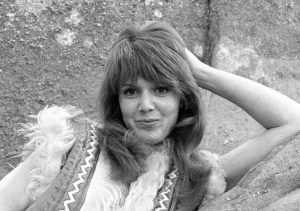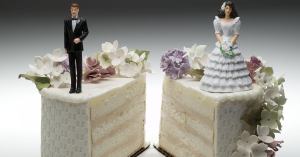Gary Hinman, the first victim of the Manson “family” killing rampage in July 1969, is being remembered for his life rather than his untimely death.
“It is too bad he is known as a victim of Charles Manson, but that is not how the family remembers him,” cousin Charlotte Hood told PEOPLE after Manson died on Sunday.
Videos by PopCulture.com
She pointed out the unfairness that her cousin’s killer remained alive for more than 40 years after orchestrating Hinman and eight others’ deaths.
“I saw something on the internet that he was very very ill, and it is about time,” Hood said.
She remembers Hinman, who was 34 when he was killed, as a “lost artistic soul.” He was a talented piano player with multiple college degrees, but was someone who “flittered from job to job.”
“He played at Carnegie Hall and he just got in with the wrong crowd,” Hood said of her late cousin. “He befriended Manson. He was a very generous soul, and he just got in with the wrong crowd.”
The motive for Hinman’s slaying is unclear, though it is reported that Manson asked his followers to visit the man and encourage him to join the cult group. Manson reportedly believed Hinman owned his house and two cars and had stocks and bonds; if Hinman joined Manson’s group, he would have to turn over his assets to the leader.
Authorities found Hinman on July 31, 1969, at his home outside Los Angeles, but he had been held there for three days before he was found dead. He’d been tortured and stabbed, authorities said, and a message in his blood was written by the killers.
Manson, as well as followers Bobby Beausoleil and Bruce Davis, were convicted of Hinman’s gruesome murder. Follower Susan Atkins also pleaded guilty in his death. The murder started a series of killings over the following two months, and nine people, including actress Sharon Tate, were murdered.
“You think you are untouchable and then all of a sudden — at the time it was almost a United States crisis, and here it was, it effected us,” Hood said of the Manson “family” murders.
When Hinman died, the family thought he may have been the victim of a break-in, Hood said. But before his death, he called his parents “begging” for money.
“When we got to talking to my aunt [Hinman’s mom], she started putting two and two together,” Hood said. “And talking to the detectives, she realized the calls home were him calling for money for Manson or someone asking for money, which could have possibly saved his life.”
In the decades following Hinman’s death, Hood said the number of family members who knew him is dwindling. She, the youngest of the cousins, is one of the few relatives left who knew Hinman.
She said Hinman is buried next to his mother in a family plot, and believes he is doing well in his spiritual afterlife.
“I am sorry he didn’t get to enjoy a full life,” Hood said. “He was a Buddhist and I think they are spiritual people, and wherever he is I think he is all right.”
She can’t say the same about Manson.
“I would hope he is headed where there are a few people poking at him with pitchforks that are kind of hot,” Hood said. “Maybe he’s found his peace and maybe he has actually been saved. I find it interesting that a lot of people who are incarcerated becoming excellent Christians real quick.”
Manson was a prisoner at Corcoran State Prison for more than four decades. During that time, he accrued more than 100 infractions and was denied parole 12 times.
He died at age 83 while serving nine concurrent life sentences.









